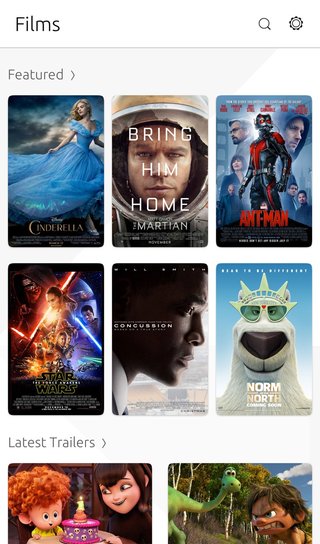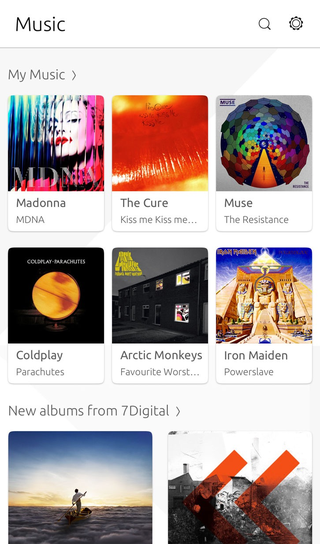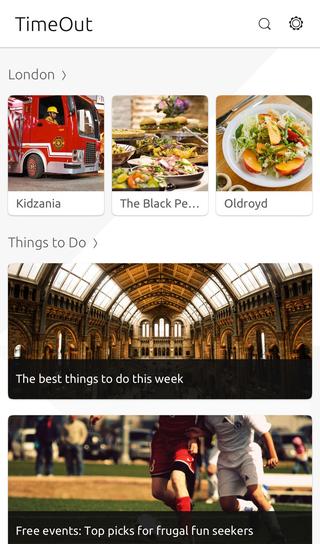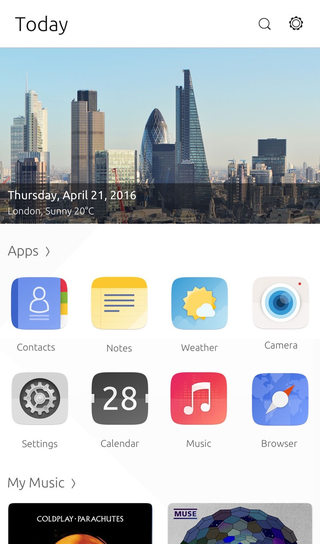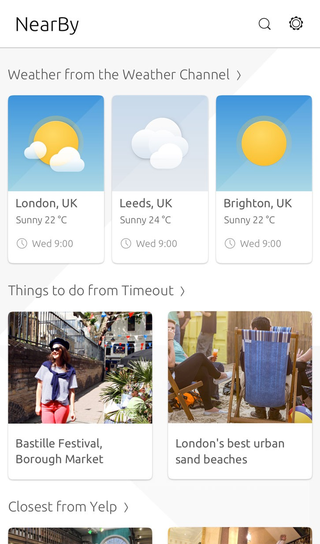For developers by design
Bring your content and services into the core phone experience
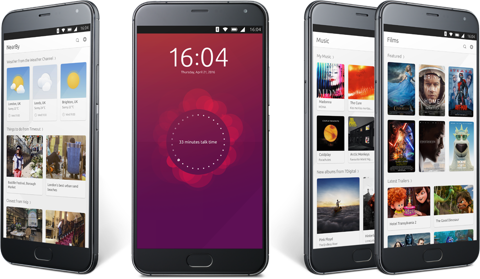
Introducing scopes and frameworks
With Ubuntu, you can make your content discoverable via the phone’s default aggregating scopes (e.g. Today, NearBy, News, Music, Photos and Videos) simply by creating a new scope of your own. For even deeper API access, Canonical provides development frameworks. Take Messaging, for example. A framework provides full access to the system-based messaging application, so that OTT and RCS service providers can offer a truly integrated experience, without creating their own dedicated applications.
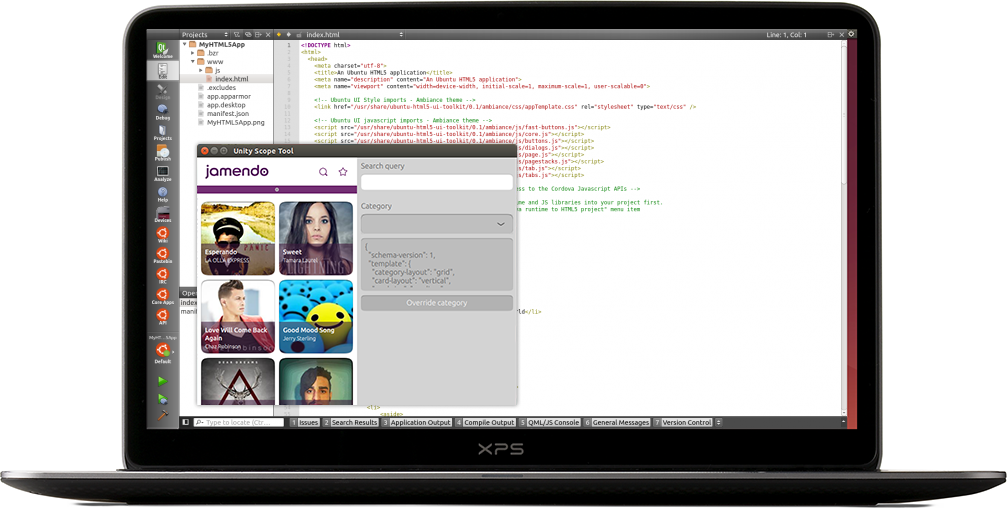

Space for your content to shine
There’s no better way to highlight your content and services than Ubuntu’s thoughtfully designed scopes, giving you more space to make your content stand out.

Tag your scope — be part of the default experience
By tagging your scope with keywords, you’ll make it easier for users to find your content when they use the phone. In effect, you’ll be building your content and services right into the default experience of the phone.
HTML5 and web apps: the fastest path to Ubuntu
If you’ve created HTML5 apps or mobile websites for other platforms, — there’s good news: the path to Ubuntu couldn’t be quicker. We support both the Webkit/Blink and Cordova development standards — and with a separate API that enables websites to be quickly converted to run independently of a browser (with full access to phone notifications and settings) the same goes for your web applications.

Going native
The Ubuntu SDK includes everything you need to create your own scopes, repurpose your web/HTML5 content and develop native apps.
- QtCreator IDE (2.8.1) with improved device detection and management
- Full native OpenGL
- System and service APIs for accessing hardware sensors and alarms
- The freedom to combine QML, C or C++ and JavaScript
- The latest Ubuntu designs so you can build your app to fit with the UI


A helping hand
Our Qt development partner, ICS, offers native app development services and localisation on Qt platforms. Their team of engineers can develop elegant solutions in response to the most complex requirements — and help you bring your application to life on Ubuntu.
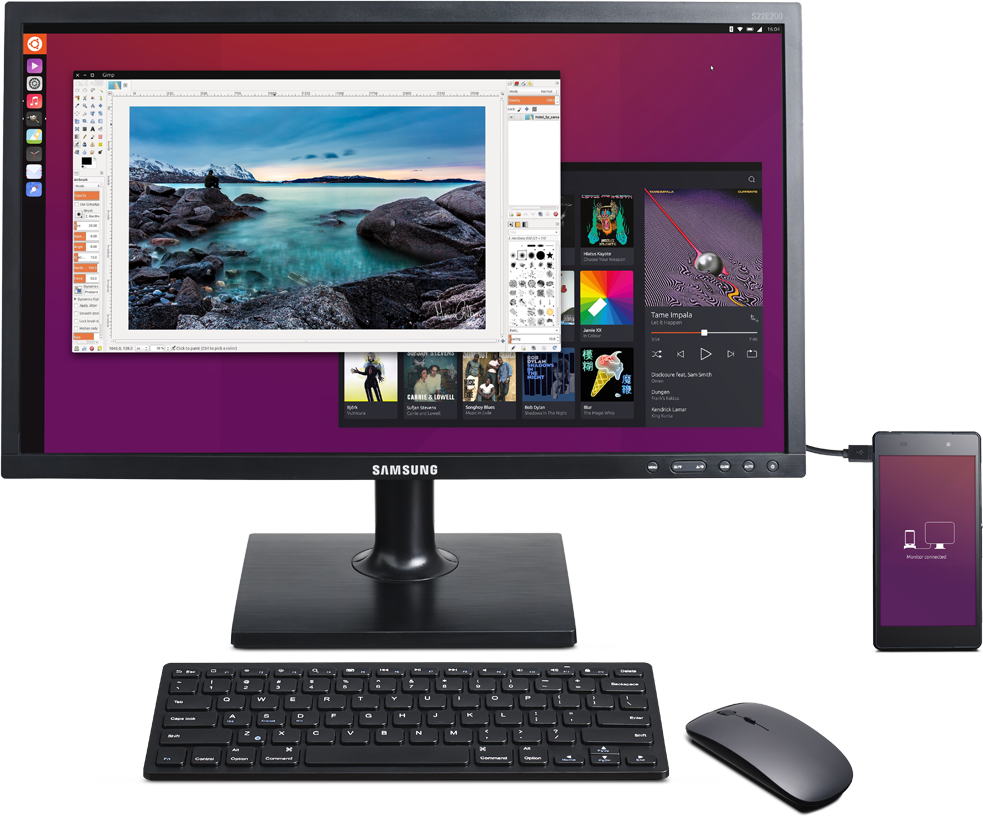
Using Ubuntu on your favourite phone
Ubuntu is entirely open source, so anyone can port it onto a compatible phone. Whether you’re a hardcore kernel developer or just a tech enthusiast in a ROM-flashing mood, you’ll find plenty of like-minded people to help in the Ubuntu community. And if you have a phone with HDMI-out, you can use Ubuntu to turn it into a convergent device, running full PC apps when you connect it to a screen, mouse and keyboard.
